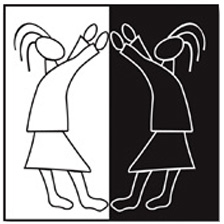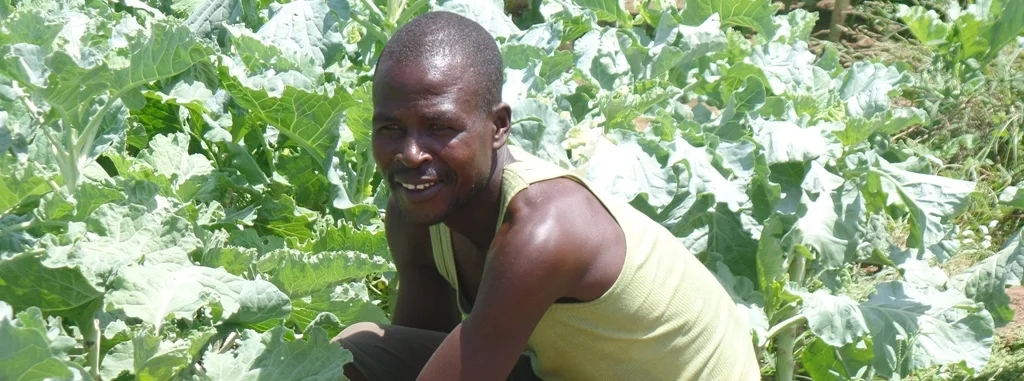Completed Projects:
KANGALITA - WATER
This is a farming community that, constructed many kilometers of irrigation canals in part with our support. We visited the village in 2011, and can confirm that discernible progress has been made as a direct result of our contributions. We were led on a tour by the community’s leader (Chairman Tomas, pictured above) and his senior lieutenants, who were very forthcoming and impressive.
Through the funding they have been able to expand the farms, to approximately 100 acres, principally because they have the funding to dig shallow wells away from the canals, thus significantly expanding the land under cultivation. Indeed, during our visit we inspected a new shallow well and were startled when the "Engineer", an expert in digging such well, emerged from the 11 meter deep web, which he had been excavating.
The community has experimented with different crops (tomatoes, onions, cassava, even rice). As part of our funding, the farm also received toggenburg goats, which produce five times the milk of a regular goat; each recipient is required to share the offspring with others in the tribe. We were told that it was unusual for a community to deviate from age old customs and adopt new livestock.
Naurenpuu
The centerpiece of the projects is a new well and solar pump, which we funded. Even casual inquiries made plain that the interest in farming shown by the local community was much higher than at any time in the past, that the techniques being used, while rudimentary, were clearly more sophisticated than in the past, and that the farm’s yield had significantly improved the nutritional value of the community’s diet.
Integrated Food Security Program
We partnered with the R.C. Diocese’s human services arm and an Irish aid agency to establish a comprehensive agriculture program
a food for work program, which provides dignity and community-building and reduces dependency
training in crop and seed production, fruit tree maintenance, animal production, development of water resources and (eventually) market practices in the sale of farm produce
an enhanced ecosystem, with the gardens impeding erosion and attracting other wildlife
opportunities otherwise unavailable for targeted populations: women and HIV/AIDS infected people.
SOPEL- Water
The 600 people and 5,000 animals of the village of Sopel had no access to water, meaning that two-thirds of the population left the village with animals in search of water, leaving behind the old, the young and the frail. In the short rainy season, girls fetched water from a river bed 13 miles from the village an arduous and extreme time-consuming task.
Friends of Turkana enabled our local partner to dig a water borehole and equip it with a pump. The availability of water significantly reduced the hardship of the villagers all year round. It reduced the need for much of the village to depart every year in search of water for their animals, and a more permanent population facilitates the provision of nursery schools, medical care and adult education. Providing a water borehole also encourages the development of small agricultural plots to address food security.
This is a sea change in the culture of this nomadic community and is a classic example of the type of project we prefer: An organic idea (the borehole and well) formulated by a local community, which permits the community to identify further projects which they feel would better their lives.
Lokitaung
This is a village six hours northwest of Lodwar which we have supported in the past. Some of our prior projects were destroyed in a wind storm last year, and we funded an effort to repair and improve such facilities to increase the availability and delivery of fresh water for personal use and local gardens. We received reports that the work is progressing well and which were near enough to Lodwar to permit regular inspection and monitoring . We were taken to this farming community, which is ideally situated on the banks of the Torkwil River.
Nakechichok Women’s Group
We partnered with Richard Leakey’s Turkana Basin Institute to establish an agricultural opportunity for local women
It was the time of the Great Drought and NGOs fed much of the population
80 women began the project, 50 continued
The women learned basic farming techniques, prepared the land, planted seeds, built shade tents, nurtured the seedlings, pumped water, kept the vermin at bay and harvested the crops
The results have been dramatic for the women and their families
For the first time, the women could gather and talk and share together as a group, independent of men
They learned sustainable practices that did and will stave off famine
They provided enhanced nutrition for their families, with fruits and vegetables previously unavailable to them
Their self-esteem was enhanced by gaining the ability to feed themselves
They earned hard currency by selling part of the production in the market
Their children were able to attend school instead of searching for roots to eat







